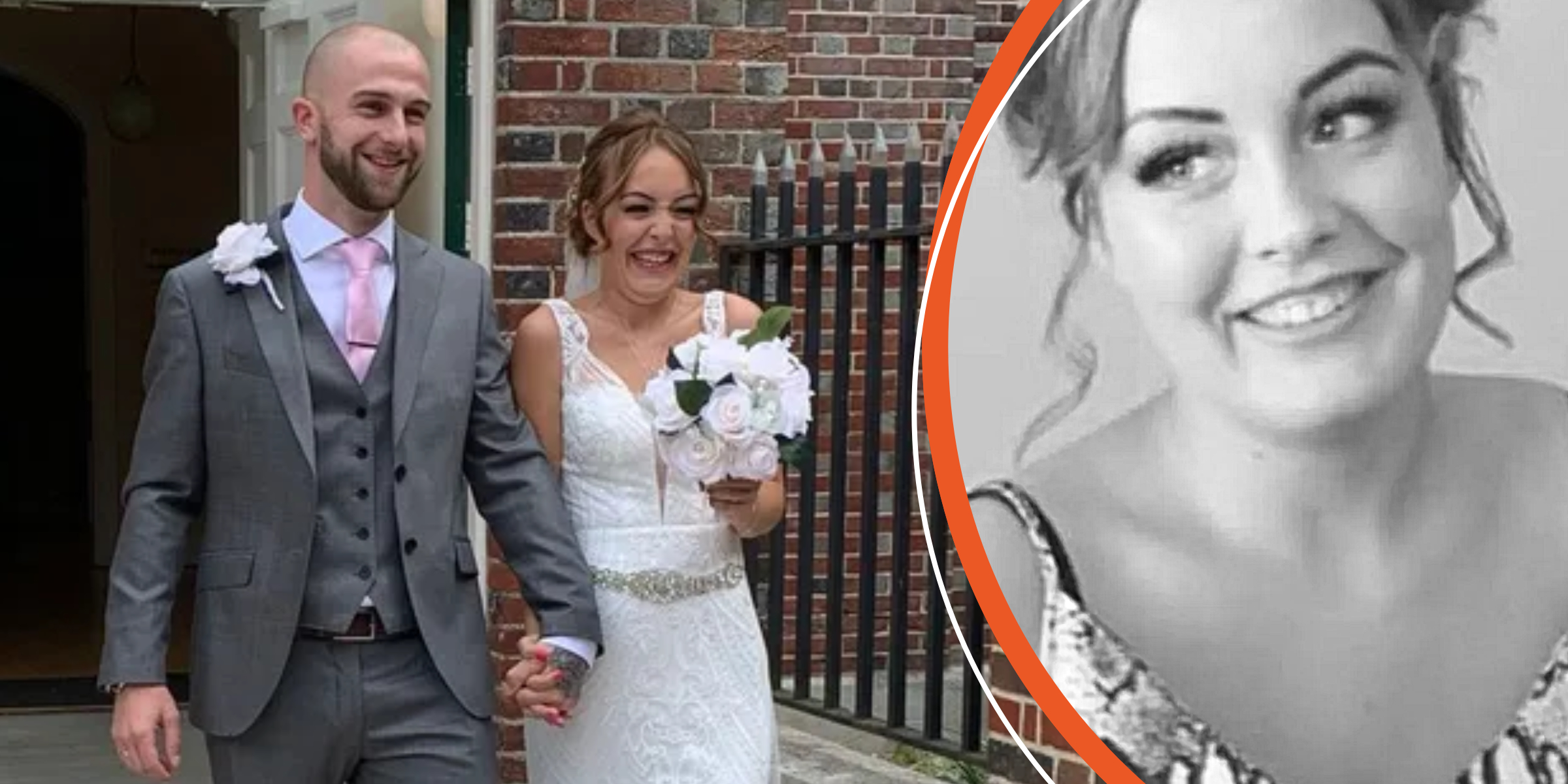
28-Year-Old Mother, Beth, Dies While on Holiday Trip With Husband & Kids — Her Autopsy Report Shocked Her Family
A family returned from a holiday abroad, grieving and searching for answers after a post-mortem in the U.K. revealed that a young woman's heart was missing.
A U.K. family's holiday in Turkey ended in devastation when 28-year-old Beth Martin died following what relatives describe as a series of medical and legal failures.
The story was first detailed in a public appeal organized by Robert Hammond, a relative of the family, who launched a GoFundMe campaign to support Beth's husband, Luke Martin, and their two children.
Beth, Luke, and their children flew to Turkey on Sunday, April 27, 2025, for a long-awaited family holiday. But the trip took a sudden turn — Beth was already feeling unwell when they arrived. She managed only a little sleep that night, and by Monday morning, April 28, she had become delirious.
Luke attempted to contact local medical services but was told help would not be available until 10 a.m. "Luke eventually managed (despite the language barriers) finally got an ambulance and Beth was taken to hospital, Luke followed behind in a taxi with their two young children in tow," Robert said.
At the hospital, Beth's condition left a traumatic impression on the children. Robert recounted, "The children traumatised — watched helplessly as their mum was pinned down, poked, prodded invasively by strangers. No explanations. No understanding." A fellow passenger from their flight stayed with Beth while Luke returned the children to the hotel.
That night, Beth was moved to intensive care, and Luke was denied access. "From there, no calls and no updates despite him trying to contact the hospital to see if his wife was ok, Just [sic] silence," Robert recalled.
The next day, April 29, Beth's and Luke's mothers arrived in Turkey. After a desperate search, they were told Beth had been transferred overnight due to "concerns with her heart," but no one had informed them. Once they found her, the staff repeatedly delayed access. "You can see her in 10 minutes'... 5 more minutes... For hours this continued. Hours," Robert added.
Meanwhile, Turkish police visited the hotel and questioned Luke without a translator. "Luke was made to sign a document — without knowing. He later translated the statement, which had read that Beth had died at around 9 a.m." Robert said. At that point, the hospital still hadn't informed him. Luke was also accused of poisoning Beth.
The GoFundMe post explained that shortly before the hospital officially confirmed Beth's death, the family had finally secured a transfer to a private hospital — something Luke had been pushing for since her initial admission.
According to the family, what followed was even more distressing. They were asked to pay £2,000 ($2,540) and were told Beth would be buried the next day. Luke refused and insisted on bringing her home. Two days later, on April 30, Luke faced further questioning — this time in a van parked outside a hospital, surrounded by armed officers.
After being cleared, he was allowed only a brief moment with Beth's body. The emotional toll of the ordeal was captured in the family's words, "Being wrongfully accused in a foreign country of murdering someone you love so dearly is life-altering."
Beth’s mother was also granted a supervised viewing under strict conditions. The family was then told to move Beth's body without assistance. Robert recounted, "It is uncomprehendable to believe that the mother, husband and best friend of this 28 year old young woman, were told to take her body bag through a hospital [sic]."
By May 2, Luke was told insurance arrangements could take weeks. Determined not to wait, he paid thousands of pounds out of pocket, on top of mounting expenses, to bring Beth home himself. The following day, May 3, he told the children their mother had died. He described watching the light leave their eyes as the hardest moment of his life.
On May 4, the children and other family members flew back to the U.K. Luke remained in Turkey to oversee the final steps of Beth’s repatriation. By May 5, Luke finalized documents and prepared for the journey. He boarded the flight with Beth's body on May 6.
In the weeks that followed, the family began to grieve. Then came one final shock: during the U.K. post-mortem, they learned that Beth's heart was missing. The family had not been informed, nor had they consented. "They have invaded her body and they have TAKEN her heart," Robert said.
Beth's death is now under investigation for potential medical negligence. Robert's fundraiser is helping the family cover legal costs, medical bills, and repatriation expenses. "That is why we expose the deepest level of trauma we have ever experienced as a family," Robert explained. As of this writing, the page has raised £204,347 ($259,516).
Following growing public interest, Luke shared an emotional statement on Facebook on May 12. He said losing his wife left him without his partner, and their children without their mom. It felt, he wrote, like a piece of their family was missing. Telling their children the news, he said, was one of the hardest things he's ever done.
He ended his post with an encouraging message for the public, "If anyone can take anything away from this.. hold your loved ones a little longer, don't sleep on an argument, take photos, take videos, tell them you love them more. You will never know when any of these may be your last."
On May 22, Beth's friend Ellie Grey addressed widespread speculation about the cause of death in an Instagram video. She explained that Beth had already been feeling unwell before reaching Turkey. "She started being sick on the plane," Grey said, noting that Beth had eaten before the symptoms began.
Grey also noted that Luke initially believed it might have been something Beth ate. However, she clarified that Turkish medical documents had ruled out that theory. "They said it is not food poisoning. That is a very specific thing that they have said in the medical report...We don't know how she died," Grey recalled.
The lack of clarity around Beth's cause of death has drawn attention to the procedures that follow a sudden passing abroad. U.K. government guidance stated that post-mortems are common in Turkey when a death is sudden or unexplained.
Turkish authorities may remove tissue samples or organs for examination without notifying the family or obtaining consent. "If organs are removed they will normally be returned before the person's body is released for burial," the guide explained. In rare cases, body parts may be retained if further investigation is required.
Families are not automatically given post-mortem reports and must apply to a Turkish court to obtain them. If the body is repatriated, next of kin can request the report through a U.K. coroner.
